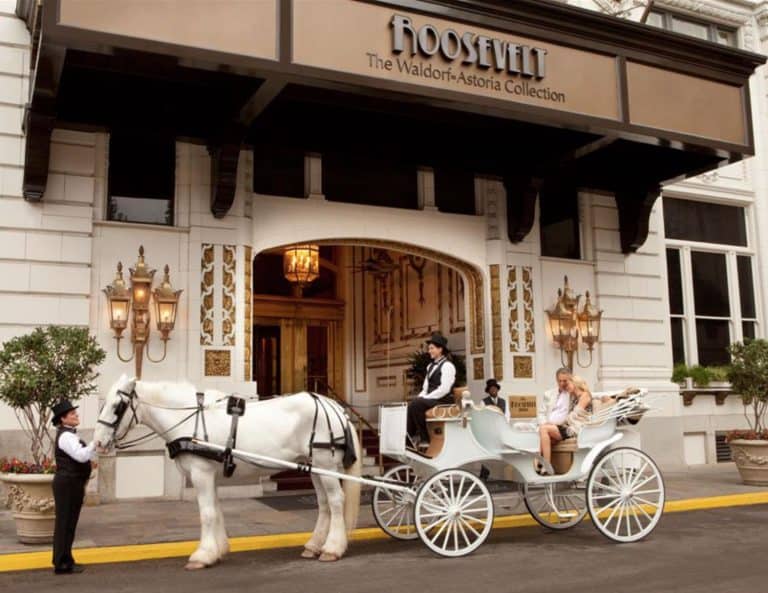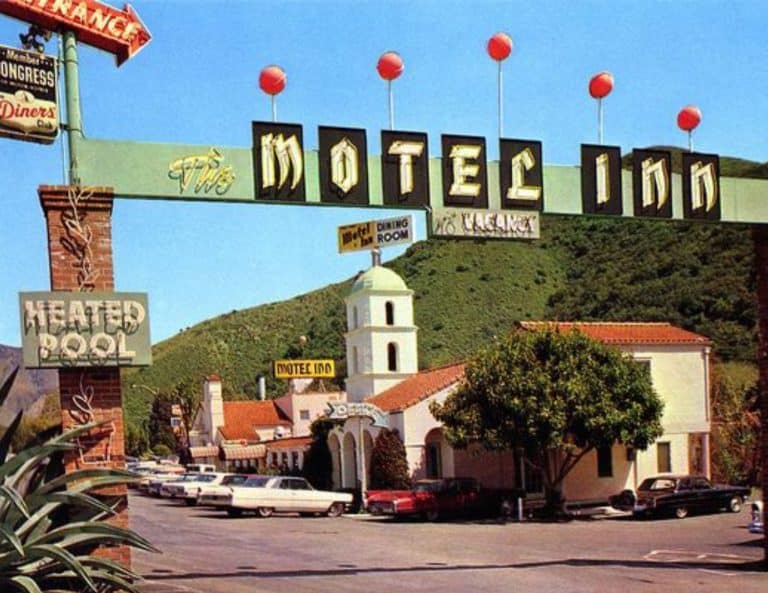Discover the eerie origins and curious beliefs surrounding the unlucky number 13 in the hotel industry.
If you’re short on time, here’s a quick answer to your question: Hotels often skip the 13th floor or omit room number 13 due to superstitions and a fear of bad luck.
In this article, we will delve into the reasons behind the superstitions, historical origins, and the impact it has on the hotel industry.
We will also explore fascinating cultural variations and alternative solutions adopted by hotels worldwide.
Join us as we uncover the intriguing mystery of the number 13 and its connection to hotel superstitions.
The Origins of Triskaidekaphobia
The fear of the number 13, known as triskaidekaphobia, has been ingrained in various cultures for centuries. This superstition has gained particular significance in the context of hotels, where the floor numbering often jumps from 12 to 14, leaving out the number 13 entirely. But where does this fear come from? Let’s explore the origins of triskaidekaphobia and its connection to the number 13.
Ancient Myths and Religious Significance
One possible explanation for the fear of the number 13 can be traced back to ancient myths and religious beliefs. In many ancient cultures, the number 12 was considered complete and harmonious, representing the twelve months in a year, the twelve signs of the zodiac, and the twelve gods of Olympus. In contrast, the number 13 was seen as disruptive or unbalanced, as it exceeded the “perfect” number 12. This belief persisted through various civilizations, including the ancient Egyptians and the Babylonians.
The Last Supper and the Unlucky 13
Another influential event that contributed to the negative perception of the number 13 is the biblical story of the Last Supper. According to the New Testament, there were thirteen people present at the Last Supper, including Jesus and his twelve apostles. Judas Iscariot, who betrayed Jesus, was the thirteenth guest. This association between the number 13 and betrayal or misfortune has had a lasting impact on Western culture and has further fueled the superstition surrounding the number.
Literary and Pop Culture References
Literature and popular culture have also played a significant role in solidifying the association between the number 13 and bad luck. One notable example is the novel “Friday the Thirteenth” by Thomas W. Lawson, published in 1907, which depicted a stock market crash occurring on a Friday the 13th. This fictional event contributed to the belief that the combination of the number 13 and Friday was particularly unlucky. Additionally, movies, such as the “Friday the 13th” horror franchise, have further perpetuated the notion of the number 13 being a harbinger of misfortune.
It is important to note that triskaidekaphobia is a superstition and does not have any scientific basis. However, due to the widespread cultural influence and historical associations, many hotels and other establishments choose to omit the number 13 to cater to the concerns of superstitious guests. Understanding the origins of triskaidekaphobia can help shed light on why this superstition continues to persist in modern society.
Superstitions and Cultural Beliefs
Superstitions and cultural beliefs have been a part of human societies for centuries. They often stem from ancient traditions, religious teachings, or historical events. One common superstition that has prevailed in many cultures is the belief that the number 13 is unlucky. This belief is so ingrained in our society that it has even influenced the hotel industry.
Western Beliefs and the Friday the 13th Phenomenon
In Western cultures, the number 13 is often associated with bad luck. This superstition is commonly known as triskaidekaphobia. One of the most well-known examples of this belief is the fear of Friday the 13th. This fear, known as paraskevidekatriaphobia, has led to numerous superstitions and precautions taken on this particular day.
Many hotels avoid using the 13th floor in their numbering systems, skipping directly from the 12th to the 14th floor. Some people even refuse to stay in a room numbered 13, believing it will bring them bad luck. This practice is so widespread that it has become an industry standard in many parts of the world.
Eastern Cultures and the Number 4
In Eastern cultures, particularly in countries like China, Japan, and South Korea, the number 4 is considered unlucky. This belief, known as tetraphobia, is rooted in the similarity between the pronunciation of the number four and the word for “death” in many Asian languages.
Similar to the Western practice, many hotels in these countries avoid using the number 4 in their room numbering systems. The 4th floor is often skipped, and rooms are numbered in a way that avoids including the number 4. This practice is seen as a way to respect cultural beliefs and cater to the preferences of potential guests.
The Impact on Business and Consumer Behavior
The superstition surrounding the number 13 and 4 in hotels has a tangible impact on business and consumer behavior. Hotels that choose to omit these numbers from their floor and room numbering systems aim to attract a wider range of guests. By catering to the superstitions and cultural beliefs of potential customers, hotels hope to increase occupancy rates and customer satisfaction.
While some may dismiss these superstitions as irrational, they hold significant cultural and psychological importance for many individuals. By acknowledging these beliefs, hotels demonstrate cultural sensitivity and a commitment to providing a comfortable and welcoming environment for their guests.
It’s important to note that not all hotels follow these practices, and there are variations in beliefs and practices across different regions and cultures. However, the influence of superstitions on the hotel industry is undeniable, and it serves as a fascinating example of how cultural beliefs can shape consumer behavior.
Hotels and the Fear of the Number 13
For many people, the number 13 is associated with bad luck. This superstition has led to some interesting practices in the hotel industry. Let’s take a closer look at why some hotels skip the 13th floor and omit room number 13, as well as alternative approaches to address this fear.
Skipping the 13th Floor
One common practice in hotels is to skip the 13th floor altogether. Instead of going from the 12th to the 14th floor, you might notice that the elevator buttons jump straight from 12 to 14. This is done to avoid any association with the number 13, which some believe brings bad luck.
Interestingly, this practice is not limited to hotels. Many high-rise buildings, including office complexes and residential towers, also avoid labeling a floor as the 13th. This fear of the number 13, known as triskaidekaphobia, is deeply ingrained in various cultures around the world.
Omitting Room Number 13
In addition to skipping the 13th floor, some hotels also choose to omit room number 13. If you’ve ever wondered why you couldn’t find room 13 in a hotel, this could be the reason. Instead, you might find room numbers jumping from 12 to 14, just like the floors.
This practice is not as widespread as skipping the 13th floor, but it is still implemented in many hotels. The goal is to alleviate any potential anxiety or discomfort for guests who are superstitious about the number 13.
Alternative Approaches
While skipping the 13th floor and omitting room number 13 are common approaches to address the fear of the number 13, some hotels take a different approach. Instead of avoiding the number, they embrace it and even use it as a marketing tool.
These hotels may offer special promotions or discounts on the 13th of each month, or they may have a “lucky 13” package that includes additional amenities. By turning the superstition on its head, these hotels aim to attract guests who are not bothered by the number 13 or who simply enjoy a unique and quirky experience.
It’s important to note that superstitions and beliefs vary among individuals and cultures. While some people may find the fear of the number 13 irrational, others take it very seriously. Ultimately, the hotel industry has adapted to accommodate these beliefs in various ways, whether by avoiding the number altogether or by embracing it in a positive light.
For more information on the fear of the number 13 and its impact on hotels, you can visit websites such as www.triskaidekaphobia.com or www.superstitionsonline.com.
The Global Perspective
While the belief that the number 13 is unlucky varies across cultures, it is pervasive enough to have an impact on the hotel industry worldwide. Let’s take a look at some international practices and variations that contribute to the superstition surrounding the number 13 in hotels.
International Practices and Variations
In many Western countries, hotels often skip the 13th floor altogether, jumping directly from the 12th to the 14th floor. This is known as “floor numbering superstition” and is done to avoid any potential negative connotations associated with the number 13. Some hotels even go as far as omitting room numbers that contain the number 13.
Interestingly, this practice is not limited to Western countries. In fact, it can be observed in various parts of the world. For example, in China, the number 4 is considered unlucky due to its similarity in pronunciation to the word for “death.” As a result, some hotels avoid using the number 4 in their room and floor numbering systems.
Another interesting variation can be found in Japan, where the number 9 is considered unlucky. This is because the pronunciation of the number 9 is similar to the word for “pain” or “suffering.” As a result, some Japanese hotels avoid using the number 9 in their room and floor numbering systems.
Architectural and Design Considerations
The superstition surrounding the number 13 in hotels also extends to architectural and design considerations. Some hotels intentionally design their buildings with a different number of floors or rooms to avoid the number 13 altogether. This may involve adding or subtracting floors or rooms to ensure that the number 13 is not present.
Architects and interior designers also take into account the cultural beliefs and superstitions of the target market when designing hotels. They may incorporate certain design elements or symbols believed to bring good luck, in order to counterbalance any perceived negativity associated with the number 13.
It’s important to note that while these practices and considerations may seem superstitious to some, they are rooted in cultural beliefs and the desire to cater to the preferences and sensitivities of guests. At the end of the day, hotels aim to provide a comfortable and enjoyable experience for their guests, and if avoiding the number 13 helps achieve that, then it becomes a worthwhile consideration.
Overcoming the Superstition
Belief in the unluckiness of the number 13, also known as triskaidekaphobia, is widespread, especially in the context of hotels. However, it is important to approach this superstition with a rational mindset and skepticism. Many people believe that the origin of this superstition can be traced back to various historical and cultural factors. Exploring these rational explanations can help challenge the stigma associated with the number 13.
Rational Explanations and Skepticism
One rational explanation for the fear of the number 13 is its association with unfortunate events throughout history. For example, Judas Iscariot, the betrayer of Jesus in the Bible, is often depicted as the 13th guest at the Last Supper. Additionally, the Knights Templar, a medieval Christian military order, were arrested on Friday the 13th in 1307. These events have contributed to the negative connotations surrounding the number 13.
However, it is important to remember that correlation does not imply causation. Skeptics argue that attaching significance to a specific number is merely a product of human perception and coincidence. The belief in the unluckiness of the number 13 may be a result of confirmation bias, where people tend to remember negative events associated with the number while ignoring positive ones.
Challenging the Number 13 Stigma
Despite the prevalence of triskaidekaphobia, many hotels are challenging the number 13 stigma by embracing it rather than avoiding it. Some hotels have even started offering discounted rates for guests willing to stay in room number 13. This approach aims to show that the number 13 is just a number and has no inherent power to bring bad luck.
Furthermore, some hotels have taken a creative approach to room numbering, skipping directly from room 12 to room 14. This not only eliminates the number 13 but also adds an element of novelty for guests. By subverting the superstition, these hotels are encouraging guests to question their beliefs and overcome their fear of the number 13.
It is important to approach superstitions with a critical mindset, evaluating the evidence and rational explanations behind them. By doing so, we can overcome irrational fears and embrace a more rational understanding of the world around us.
Conclusion
Despite its irrational nature, the fear of the number 13 continues to influence hotel practices and beliefs around the world.
From ancient myths to modern culture, the superstitions surrounding this number have persisted for centuries.
Whether you choose to believe in its power or not, the number 13 remains an intriguing and enigmatic aspect of our collective consciousness.
So, the next time you check into a hotel and notice the absence of a 13th floor or room number 13, remember the fascinating history and superstitions that have shaped this peculiar phenomenon.






